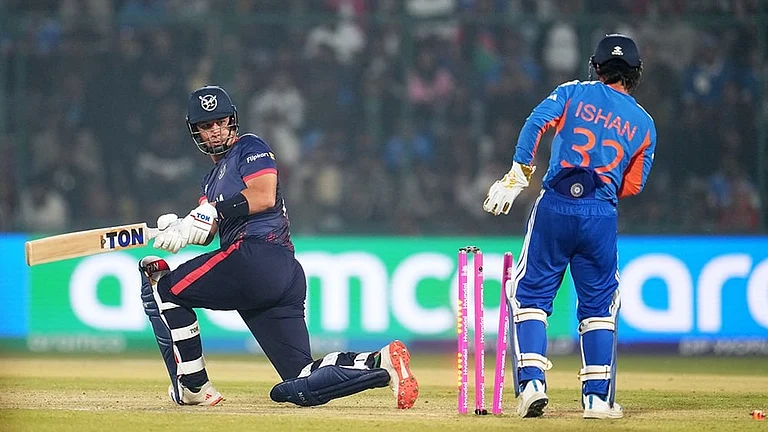In a signficant move aimed at gender sensitisation in courts, the Supreme Court on Wednesday launched a handbook on combating gender stereotypes which would guide judges in avoiding usage of inappropriate gender terms in court orders and legal documents.
The handbook which is available on the Supreme Court's website, offers guidance on how to avoid using harmful gender stereotypes, in particular those about women, in judicial decision making and writing. Citing one such common stereoptype of how some people believe that women lie about men having sexually assaulted or raped them, the handbook says, "If a judge were to utilise such a stereotype when deciding a case, it may cause them to unfairly discard or discount the testimony of a survivor or victim of sexual assault, leading to grave injustice."
On referring to women:
Child prostitute, adulteress and hooker are listed under 'stereotype promoting language'. The handbook instead, proposes the use of alternative language such as 'child who has been trafficked, woman who has engaged in sexual relations outside of marriage and Sex worker' to refer to the above-mentioned terms respectively. The word 'hormonal' which is also sometimes stereotypically used to describe a woman’s emotional state, can instead be replaced with a gender neutral term to describe the emotion (e.g., compassionate or enthusiastic).
The handbook also cited judgments that were stereotypical in nature. For example, in 2017, the Kerala High Court observed, “A girl aged 24 years is weak and vulnerable, capable of being exploited in many ways. The Court, exercising parens patriae jurisdiction is concerned with the welfare of a girl of her age. [...] Her marriage being the most important decision in her life, can also be taken only with the involvement of her parents." The Supreme Court had reversed this decision noting that, "The High Court has lost sight of the fact that she is a major, capable of her own decisions and is entitled to the right recognised by the Constitution to lead her life exactly as she pleases.”
While mentioning stereoytpes such as 'women are overly emotional, illogical, and cannot take decisions' the handbook contrasts it with the reality that a person’s gender does not determine or influence their capacity for rational thought.
On gender roles
Some common stereotypes associated with gender roles including 'women should do all the household chores' were also busted in the handbook. "People of all genders are equally capable of doing house chores. Men are often conditioned to believe that only wom- en do household chores," the handbook says.
Some people also believe that women who do not work outside the home do not contribute to the household or contribute very little in comparison to their husband. Retorting to this, the handbook says that the unpaid labour performed by women not only contributes to the household’s quality of life but also results in monetary savings. "Their contributions are often overlooked because men are conditioned to believe that such work is of limited value," the handbook says.
On sexual violence
The handbook notes that assumptions are often made about a woman’s character based on her expressive choices (e.g., the clothes she wears) and sexual history. "Assumptions based on a woman’s character or the clothes she wears diminish the importance of consent in sexual relationships as well as the agency and personhood of women."
The Supreme Court's Handbook urges courts to avoid usage of the word "ravished", and instead use "sexually harassment/assaulted or raped". On the stereotype that 'women are very likely to make false allegations of sexual assault or rape', the handbook notes the difficulties women face while reporting incidents of rape. Lack of family support, the trauma a survivor/victim has to undergo to recount details of the assault in front of strangers, who are often men and how they are usually disbelieved -- are factors that make women reluctant to rape.
"It is therefore untrue that women are very likely to make false allegations. Each case must be judged on its merits and assumptions regarding the (dis)honesty of women as a class must not be made," the handbook notes.
The book also reiterates that "no means no". While some people believe that, "women who say “no” to sexual advances are shy and they actually mean to say “yes” and welcome the sexual advances," the book notes that there cannot be a presumption of consent based on a woman’s broader behavioural characteristics. Women who wish to welcome sexual advances will communicate their consent using clear language such as the word “yes.”
The top court also noted that while this handbook primarily focussed on gender stereotypes that concern women, stereotypes impact individuals from across the gender spectrum and that judges must be vigilant against all forms of gender biases.


























